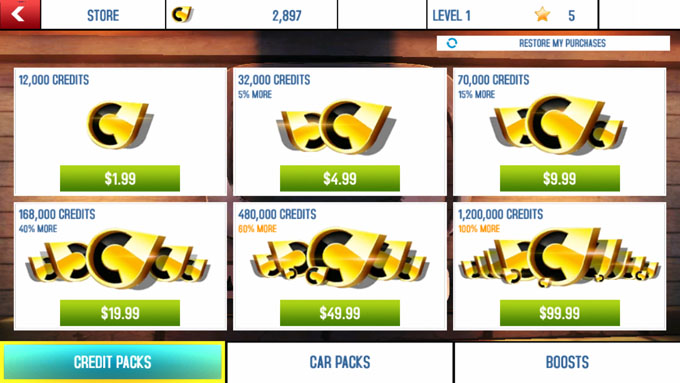- Qualcomm Launches Snapdragon 4 Gen 2 Mobile Platform
- AMD Launches Ryzen PRO 7000 Series Mobile & Desktop Platform
- Intel Launches Sleek Single-Slot Arc Pro A60 Workstation Graphics Card
- NVIDIA Announces Latest Ada Lovelace Additions: GeForce RTX 4060 Ti & RTX 4060
- Maxon Redshift With AMD Radeon GPU Rendering Support Now Available
Google to Drop ‘Free’ Label from Games with In-app Purchases Later this Year
It’s not often that the EU forces a change in technology that doesn’t make me want to pull my hair out, but its deserves some props for its latest accomplishment. Where mobile gaming is concerned, I’d have to say that my number one gripe are “Free” apps that are not free at all. You know the ones; a developer will throw the bait, you’ll get addicted, and then the pain comes – as does the extreme pull to haul out your wallet.
It’s not just me that hates this mechanic – a lot of people do, and so does the EU. For that reason it’s persuaded Google to drop the “Free” moniker on games that have IAPs, and, the big G is going to go ahead and do that. At this point, it’s not entirely clear if this change is going to affect the worldwide Play Store, because after all, this move stems from the EU, so it might stick to the EU. I sincerely hope that isn’t the case, though, because there’s no excuse on earth that could prove to me that such deceit is a-OK.
 In-app purchases in Game Loft’s Ashphalt 8
In-app purchases in Game Loft’s Ashphalt 8
That being said, I would feel bad for the developers that design their games to make IAPs a mere option, not a near-requirement. Vector Unit is a good example of this sort of developer. Beach Buggy Blitz, a game I took a look at a while ago, has IAPs, but doesn’t make them so tempting that they’re hard to avoid. If you put a moderate amount of time into the game, you can easily acquire everything it has to offer. After putting so much time into the game, I spent $2 just to show the developer some support; I didn’t really need what that IAP offered me.
Meanwhile, there’s games like Asphalt that are the stark opposite – not long into the game you’ll be feeling that pull to spend some cash, but don’t worry, the game will constantly remind you to.
So what about Apple? Since the EU’s speaking up, the Cuptertino firm has as well, stating that it takes great pride in leading the industry in parental controls and making it clear as day whether or not money can be spent on something. This is all fine and good, but what about the adults? If something isn’t truly free, it shouldn’t be marked as free.




